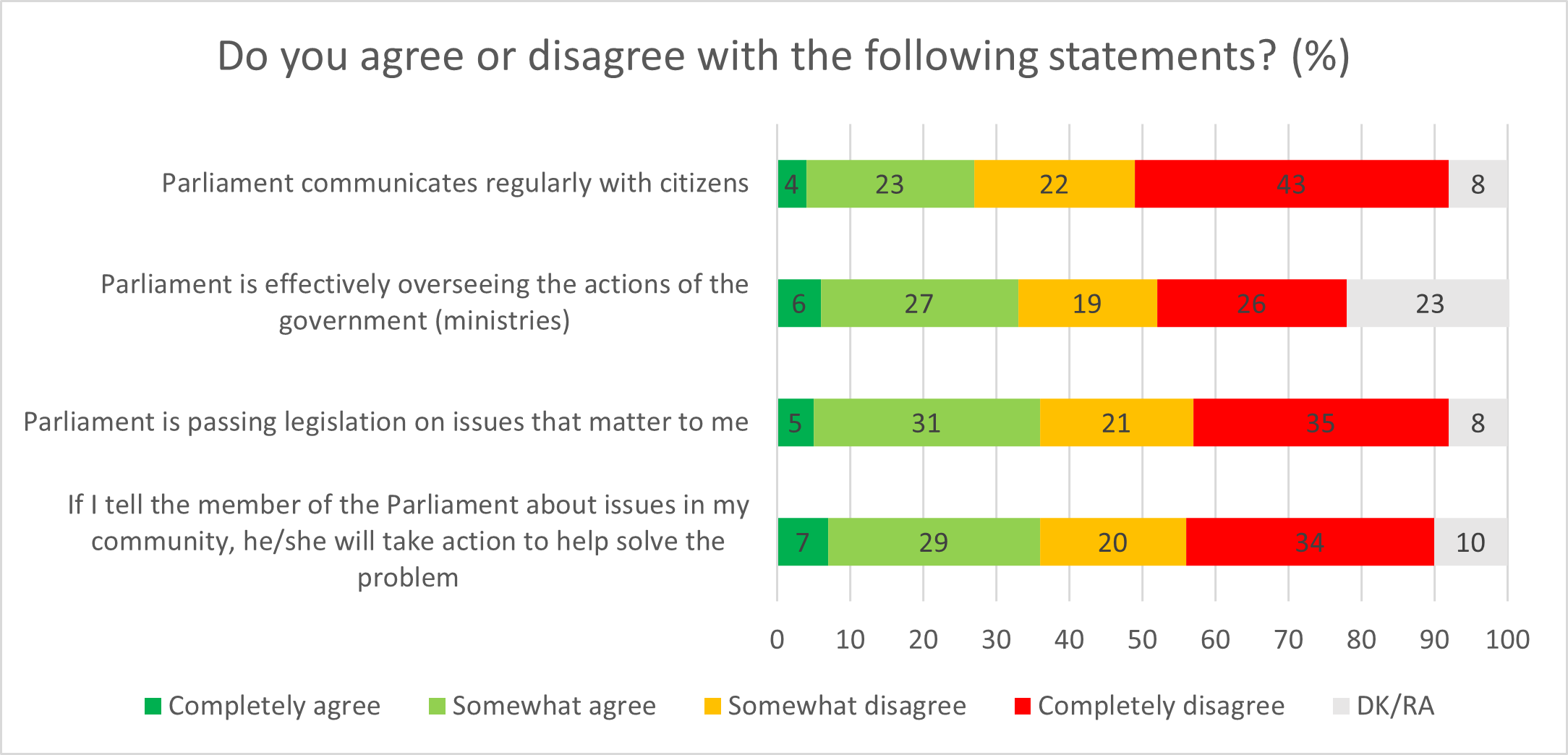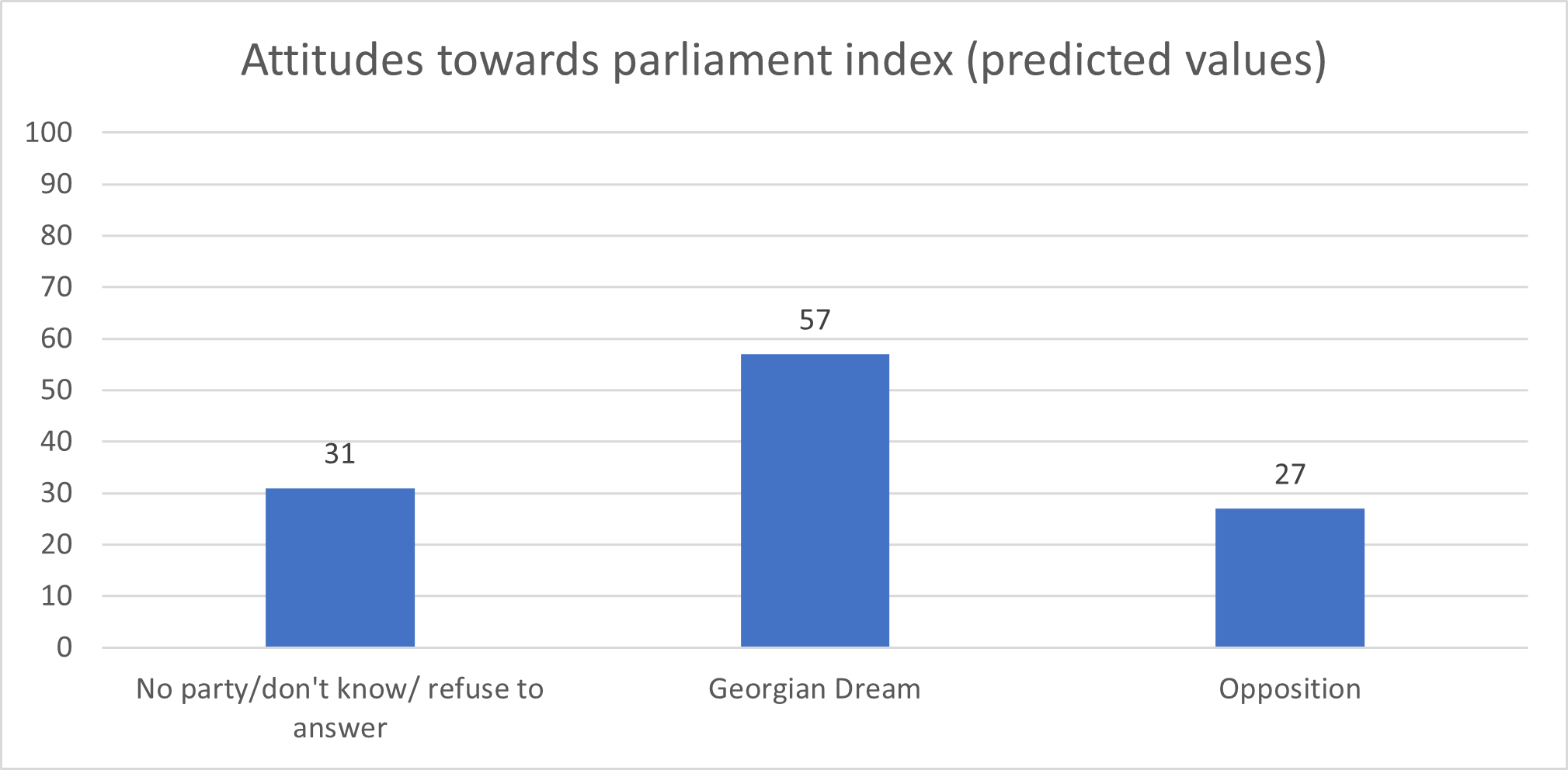A recent CRRC Georgia survey found that the Georgian public tends to feel that the parliament does not function well, and does not represent their interests. However, those who support Georgia’s ruling party were more likely to feel that parliament was effective in its function.
Past analysis has repeatedly found that the Georgian public’s assessment of their state institutions and the individuals that run them is divided along partisan lines. Similar divides are found when asking questions about the direction in which the country is headed and the quality of the country’s democracy, with supporters of the ruling party providing more positive assessments.
Data from the July/August CRRC-Georgia and National Democratic Institute (NDI) survey shows that this divide extends to views of how well parliament is functioning.
The survey asked respondents whether they agreed with the statements that:
- Parliament regularly communicates with citizens
- Parliament effectively oversees other branches of government
- Parliament passes legislation on issues that matter to me
- If I told a member of parliament about issues in my community, they would take action to help solve the problem
Overall, the public tended towards disagreement with all of these statements. People disagreed most with the statement that parliament communicates regularly with citizens, with 65% of the public disagreeing and only 27% agreeing. Similar proportions disagreed with the statement that parliament passed legislation on issues that mattered to them (56%) and that a parliament member would take action to help solve their problem (54%), while 36% agreed with both statements. With regards to the statement that parliament was effectively overseeing other branches of government, 45% disagreed and 33% agreed. This statement had the highest level of uncertainty, with roughly one quarter of the public (23%) neither agreeing nor disagreeing.

The above data were merged into a simple additive index that reflected the public’s attitudes towards parliament. Completely agree responses corresponded to four points, agree responses corresponded to three points, don’t know responses corresponded to two points, disagree responses corresponded to one point, and strongly disagree responses corresponded to zero points. The scale was then standardised to a 100 point score to ease interpretation. The average score on the index was 37, indicating overall low agreement with the above statements.
A regression analysis which included the age group, settlement type, education level, employment status, ethnicity, household wealth, sex, and political party allegiance of respondents suggests that the only variable which predicted people’s attitudes on the topic was which party they supported.
Supporters of the ruling party were roughly twice as likely to think that parliament functioned well compared to supporters of either the opposition or those who supported no party.

As has been found for other government institutions, the Georgian public tends towards negative attitudes regarding the functioning of parliament, with the exception of supporters of the ruling party, who are substantially more likely to view the work of parliament positively.
The views presented in this article are the author’s alone, and do not reflect the views of CRRC Georgia, NDI, or any related entity.










